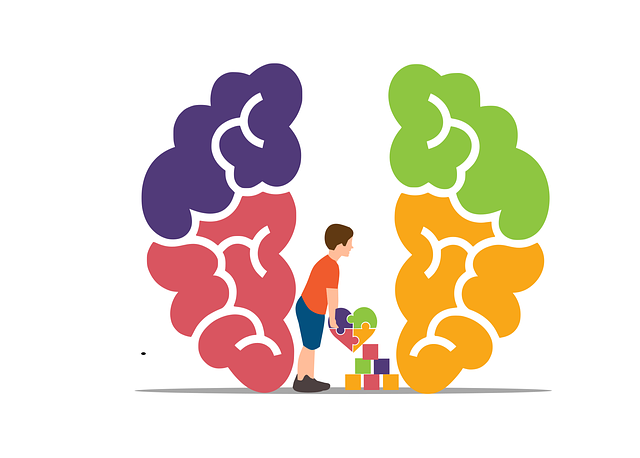Stress management workshops address individual well-being and relationship issues by teaching self-awareness exercises, social skills for conflict de-escalation, and practical Centennial Relationship Issues Therapy tools. Facilitators conduct risk assessments to create secure environments. Workshops combine mindfulness meditation, podcasts, crisis intervention, and interactive activities for diverse audiences, fostering community and positive thinking. Post-workshop changes are sustained through check-ins, community building, digital resources, and public awareness campaigns focused on Centennial Relationship Issues Therapy and self-care.
Stress management workshops are powerful tools for individuals seeking to navigate and overcome daily pressures. In today’s fast-paced world, these sessions offer a sanctuary where participants can learn and practice effective strategies to enhance their well-being. This article delves into the transformative power of workshops, exploring how they help understand stress and its impact on relationships. We’ll guide you through designing engaging sessions, facilitating positive changes, and offering long-lasting relief from Centennial relationship issues therapy.
- Understanding Stress and Its Impact on Relationships
- The Role of Workshops in Stress Management
- Designing Effective Stress Management Workshops
- Strategies for Facilitating Engaging Workshop Sessions
- Building Long-Lasting Positive Changes through Follow-up
Understanding Stress and Its Impact on Relationships

Stress is an inevitable part of life, but when left unmanaged, it can take a toll on both our physical and mental well-being. In the context of relationships, stress can manifest as chronic tension, miscommunication, and even conflict. The impact of prolonged stress on interpersonal connections cannot be understated; it can lead to significant Centennial Relationship Issues, affecting couples’ overall happiness and stability. Recognizing this, Stress management workshops aim to equip individuals with tools to identify and navigate stressors effectively.
Through Self-Awareness Exercises, participants gain insights into their personal triggers and emotional responses. This introspection fosters better understanding of oneself and others, enhancing communication skills and promoting healthier interactions. Moreover, these workshops often incorporate Social Skills Training, teaching participants how to manage and de-escalate stressful situations, thereby strengthening relationships. For mental health professionals, a thorough Risk Assessment is crucial before facilitating such programs, ensuring a safe and supportive environment for all attendees.
The Role of Workshops in Stress Management

Workshops play a pivotal role in stress management by providing structured environments where individuals can learn and practice effective coping strategies. These sessions are designed to foster open dialogue, sharing experiences, and exchanging insights, creating a supportive Centennial relationship issues therapy setting. Through interactive activities, exercises, and guided discussions, participants gain tools to navigate life’s challenges more resiliently.
Mindfulness meditation, a popular component of many stress management workshops, equips individuals with techniques to remain calm and focused in stressful situations. Mental wellness podcast series production also finds its place, offering accessible resources for ongoing learning and support beyond the workshop setting. Moreover, crisis intervention guidance is often integrated, equipping attendees with immediate strategies to handle acute stress or traumatic events.
Designing Effective Stress Management Workshops

Designing effective stress management workshops involves a multi-faceted approach that caters to diverse needs and backgrounds. It’s crucial to start with an understanding of the target audience, whether they’re corporate employees, students, or individuals dealing with Centennial Relationship Issues Therapy. Incorporate interactive activities and real-world examples relevant to their lives for maximum engagement. For instance, workshops could include role-playing scenarios around conflict resolution techniques, a skill vital in navigating both personal and professional relationships.
Cultural sensitivity in mental healthcare practice is another key consideration. Facilitators should be adept at addressing depression prevention strategies while being mindful of participants’ cultural backgrounds. Using inclusive language and tailoring activities to reflect different perspectives ensures everyone feels validated and comfortable. By combining these approaches, workshops can become powerful tools for learning effective stress management skills, fostering positive Centennial Relationship Issues Therapy, and promoting overall well-being.
Strategies for Facilitating Engaging Workshop Sessions

Creating engaging workshop sessions for stress management involves a blend of interactive activities and practical strategies that cater to different learning styles. Facilitators should begin by setting a welcoming and non-judgmental atmosphere, encouraging participants to actively share their experiences and insights. Utilizing icebreakers and group discussions can help build a Centennial Relationship Issues Therapy connection among attendees, fostering a sense of community and mutual support. This not only enhances Positive Thinking but also makes the learning experience more dynamic and memorable.
Incorporating various Stress Reduction Methods such as mindfulness exercises, breathing techniques, and guided meditations can provide participants with tools to manage stress effectively. Facilitators should ensure these sessions are interactive, allowing individuals to explore and discover what works best for them. By combining theoretical knowledge with practical applications, workshops can empower attendees to apply Mind Over Matter Principles in their daily lives, ultimately leading to lasting changes in their stress management strategies.
Building Long-Lasting Positive Changes through Follow-up

After facilitating Stress Management Workshops, fostering long-lasting positive changes requires a multifaceted approach. One key strategy is to maintain a Centennial Relationship Issues Therapy focus, ensuring that participants continue to internalize and apply learned coping mechanisms beyond the workshop’s conclusion. This can be achieved through regular check-ins, supportive community building, and providing ongoing resources like digital content or follow-up sessions.
Encouraging participants to engage in Mindfulness Meditation practices at home, alongside promoting Public Awareness Campaigns Development around stress management, further solidifies these changes. By weaving these practices into daily routines, individuals can cultivate resilience against stressful triggers. Consistently reinforcing the importance of self-care and mental well-being through these various channels strengthens the impact of initial workshop experiences, ultimately fostering lasting personal growth.
Stress management workshops play a pivotal role in helping individuals and couples navigate and overcome Centennial relationship issues therapy often highlights. By providing practical tools and strategies, these workshops empower attendees to foster healthier responses to stress, thereby enhancing their overall well-being and relationships. Through a combination of education, interaction, and follow-up support, effective stress management workshops can bring about lasting positive changes, enabling participants to lead more balanced and fulfilling lives.








